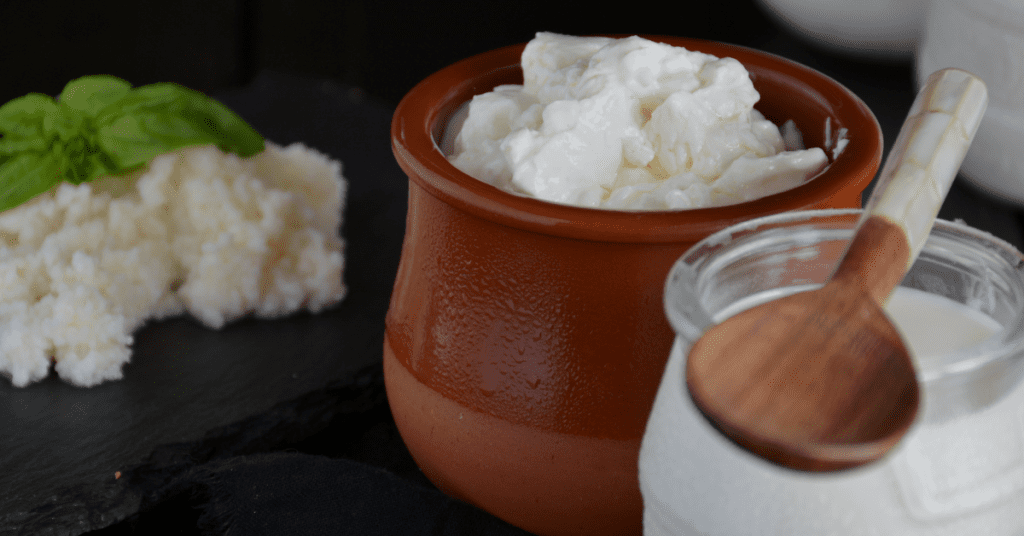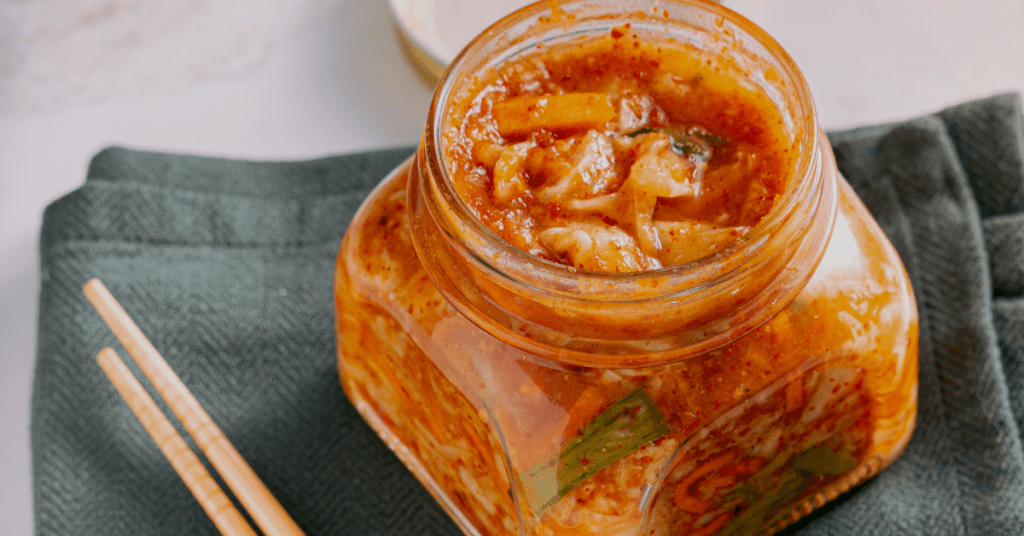So, you want to focus on gut health. Or, if you’re new to this, I’m here to tell you that you should! Poor gut health has been linked to several serious health issues, like thyroid problems, rheumatoid arthritis, MS, cancer, and many others.1 Suffice it to say gut health is essential!
One surefire way to help your gut is to consume probiotics, which are easily found in fermented foods. Before you wrinkle your nose, you don’t need to eat anything like pickled eggs. Fermented foods can be as common as coffee or chocolate.2
Not all fermented foods are made the same. You want to ensure they contain probiotics, which will aid the good bacteria in your gut.
Here are some of the most beneficial ones.
Best fermented foods for your gut
Yogurt
If you like dairy, yogurt is an excellent source of probiotics. It’s full of vitamins like calcium, potassium, and vitamin B12. Make sure to get yogurt with live cultures because not all yogurts have probiotics.3
Some studies show that yogurt has helped lower blood pressure, improve bone density, and prevent weight gain.4 It’s best to pick an unsweetened yogurt and add fruit or honey to help the taste. Getting it unsweetened can help you control the quality and quantity of the sugar in the yogurt.
You could opt for goat or sheep’s milk if you have trouble with cow dairy. Either way, it’ll be beneficial if it’s grass-fed and organic.5
Greek yogurt is a good probiotic option and contains extra protein to help you reach your daily intake goals.6 Greek yogurt does have a more bitter taste than the “fun” yogurts, so you could add some honey to sweeten it. With some blueberries and granola, you’ve got a great snack!

Kefir
Kefir is good for helping digestion and reducing inflammation.7 Inflammation has been linked to chronic issues like heart disease and cancer. Kefir and yogurt have the most data showing their probiotic benefits.8 If you have some sort of lactose intolerance, kefir may or may not work for you, though it doesn’t have as much lactose as milk.
This one has a more sour, distinct taste, so if you think Greek yogurt is too bitter, you might not like it. I’d recommend offsetting the taste by adding something sweet like honey or fruit or even adding it to your yogurt or smoothie. Believe it or not, you could even use it to marinate chicken!
Sauerkraut
If you don’t do dairy, you could opt for a probiotic like sauerkraut. It’s an excellent addition to sandwiches, burgers, casseroles, and soups.
This condiment has actually been around for centuries. It has ancient ties to Germany, Russia, and China, with cuisines going back 2,000 years.9 It’s low in calories and full of fiber and vitamins C and K.10
Make sure your sauerkraut is unpasteurized so it still has beneficial bacteria. The best way to ensure this is to look for refrigerated sauerkraut, as that indicates its freshness.
Keep in mind that sauerkraut does not work well for people with irritable bowel syndrome.11 It’s best to try a tablespoon at a time and see how your stomach takes it.

Kombucha
Made from green or black tea, kombucha is one of my go-to’s for probiotics since I don’t consume a lot of dairy. It’s fizzy and tasty, making it a great alternative to soda.
Kombucha can be beneficial for reducing inflammation, boosting your immune system, and aiding digestion. Additionally, it could help fight against heart disease and cancer. Just be sure you read the ingredients to ensure you’re getting a good one that doesn’t contain harmful additives.
It’s best to start small when drinking kombucha, especially if you’re new to consuming probiotics.12 A safe amount could be about 4 ounces a day. You’ll want to begin slowly and see how your body reacts, as too much could cause bloating or hindered sleep.
Kimchi
Kimchi is a Korean food that’s made from fermented vegetables like cabbage. It’s good for improving cholesterol and insulin.13 One study followed people with prediabetes who ate kimchi for almost five months. After that period, their insulin levels went down, along with their blood pressure and weight.
Like many other fermented foods, Kimchi is good for fighting cancer, lowering cholesterol, and boosting the immune system.14 You don’t need a lot of kimchi. Like some of the others, try a little bit at a time and make sure your stomach has a good reaction to it. You will probably want to add a small amount to your food, given its distinct taste. You could add it to a sandwich, salad, or warm bowl of food.
Closing Thoughts
This list is by no means extensive, but these are some excellent options to help your gut. Others include apple cider vinegar or foods made from soybeans, such as tempeh, miso, and natto. I’m personally not a fan of soy, but these can serve as other dairy-free options.
Lastly, if you want to heal your gut, I’d advise against taking too many probiotics. It’s best to start slowly and build on that based on how your body feels taking them. A little can go a long way!







0 Comments